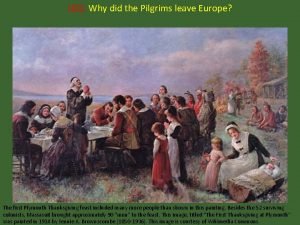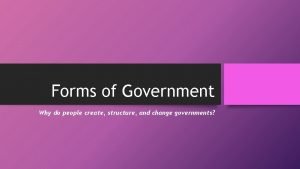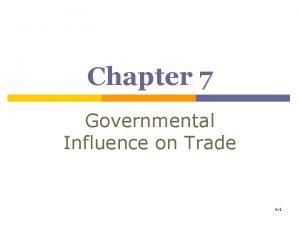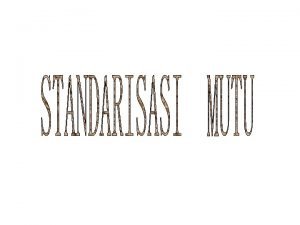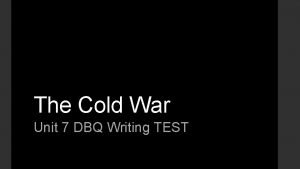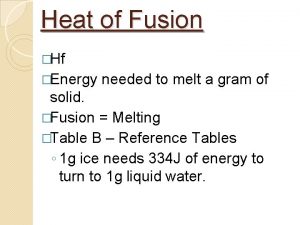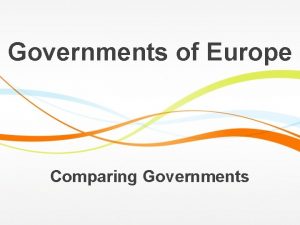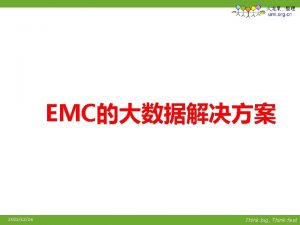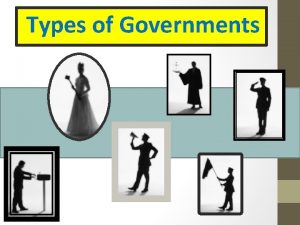Governments in Europe Why are governments needed THINK









- Slides: 9

Governments in Europe

Why are governments needed? THINK, PAIR, SHARE • Imagine a world without any laws or government. What would it look like? What would be some of the difficulties and concerns of the people? Utopia vs. Dystopia

What is Government? • Government is a set of rules and institutions that people set up in order to function together as a unified society. • Governments collect taxes in order to pay for public goods like schools, highways, libraries, parks, etc. AND protection like wars, military, police, etc.

Forms of Governments • Democracy: government by the people; a form of government in which the supreme power is vested in the people and exercised directly by them or by their elected agents under a free electoral system. • In a democracy: Individual freedom and equality is valued, free elections are held, decisions are based on majority rule, citizens can express their views freely, citizens are allowed to vote by secret ballot • Two types: Presidential and Parliamentary. • Parliamentary is the most common form of democracy. • https: //www. brainpop. com/socialstudies/thelaw/parliamentarysystem/ • Autocracy: government in which one person has uncontrolled or unlimited authority over others. • In an autocracy: Citizens have very little if any freedom and rights, elections may be held but votes not accurately counted, protest and negative speech about the government can result in jail time or death, No due process. • Two types: Absolute Monarchy and Dictatorship • https: //www. brainpop. com/socialstudies/thelaw/magnacarta/

Parliamentary Democracy Citizens vote for representatives in the legislative branch called the Parliament. This is the Prime Minister. The majority party of Parliament votes on the Prime Minister

United States • Republic- We select representatives to govern us. • Democracy- citizens allowed to participate and vote for representatives • Citizens can also participate by calling representatives, giving money to campaigns, protest, march, run for office, staying informed on issues, etc. • Citizens 18 and over can vote for legislative branch (congress) and executive branch (president). Presidential democracy- Citizens voted for members of Congress as well as Donald Trump to be President. He is the Chief of State and Head of State.

United Kingdom • Constitutional Monarchy: Country is ruled by queen or king but their power is limited by a Constitution. Queen Elizabeth II is ceremonial head of state with very little power. • Parliamentary Democracy: Citizens 18 and older vote ONLY for members of one house of Parliament (lawmaking body) House of Commons. Parliament will choose the head of government which is called the Prime Minister. • Citizens are granted basic rights and personal freedoms like the right to vote and freedom of speech, press, religion, and assembly. Theresa May – Prime Minister of United Kingdom

Germany • Germany is a parliamentary democracy: Citizens 18 and older vote ONLY for members of one house of Parliament (lawmaking body) Bundestag. Parliament will choose the head of government which is called the Chancellor. • Germany has a President as the head of state with very little power. • Citizens enjoy many freedoms: right to vote and freedom of speech, press, religion, and assembly. Angela Merkel. Chancellor of Germany

Russia • Russia is a Presidential Democracy: Citizens 18 and older vote for members of only one house of the legislative branch called State Duma AND will vote for the chief of state which is the President. • The legislative branch is far weaker than the executive branch. The President can pass decrees without consent from the legislature. • Russia claims to be a democracy but… does not have a free press but state-run news, arresting of journalists and occasionally killing them; Elections are not fair- ballot-box stuffing, forced voting of citizens, opponents not on ballot Vladimir Putin. President of Russia
 Insidan region jh
Insidan region jh Ramaniklal ambani
Ramaniklal ambani Andreas carlsson bye bye bye
Andreas carlsson bye bye bye In order to leave europe the pilgrims needed to
In order to leave europe the pilgrims needed to Why do people create, structure, and change governments?
Why do people create, structure, and change governments? Why do governments intervene in international trade
Why do governments intervene in international trade Mengapa perlu standarisasi
Mengapa perlu standarisasi Why did truman believe greece needed american aid in 1947
Why did truman believe greece needed american aid in 1947 Measuring heat energy
Measuring heat energy What is the purpose of a business activity?
What is the purpose of a business activity?



